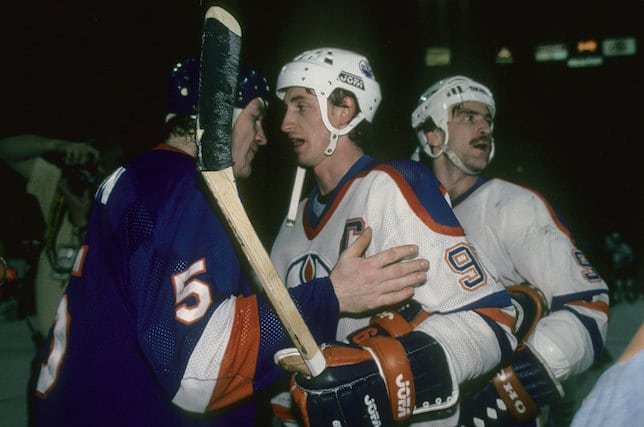
NFL has Deflategate, did the NHL have Coffeegate?
There's a fine line between cheating and doing whatever is necessary to win, and sometimes it gets blurred. Denis Potvin, for example, says he was told the 1984 Edmonton Oilers fed the rival New York Islanders decaf in the Stanley Cup final. True story?
 NFL has Deflategate, did the NHL have Coffeegate?
NFL has Deflategate, did the NHL have Coffeegate?It’s a well-worn adage in sports that if you’re not cheating, you’re not trying.
As we sit back and watch the NFL’s Deflategate with a certain amount of schadenfreude, we should be careful not to let our smug meter edge too high. Hockey isn’t as lily white as the surface it plays on.
We needn’t look beyond the NHL’s decision this season to punish divers, by outing them, for Exhibit A. If pretending to be fouled, or embellishing an act to draw an advantage isn’t unethical, it’s certainly uncool.
Players and coaches liberally bend the rules, attempting to get away with misdemeanors in the name of winning. Some become very creative at it. Remember Sean Avery’s impersonation of Martin Brodeur’s windshield wipers in the 2008 playoffs? We all knew it was unsportsmanlike at the time and officials were instructed to call it as such subsequently.
Similarly, the beloved Roger Neilson famously sought loopholes in the rulebook that needed to be tightened. He once replaced his goalie with a skater on a penalty shot, having the player charge the shooter to disrupt the scoring chance. He also pulled his goaltender for an extra attacker, but had the netminder leave his stick in the crease to help prevent an empty net goal. Inventive or sneaky?
On a more serious scale, the Pittsburgh Penguins were accused, though never found guilty, of tanking in 1983-84 in the hopes of landing the first overall pick, Mario Lemieux. This was pre-lottery, when a last-place finish guaranteed top spot on draft day. The New Jersey Devils, Pittsburgh’s No. 1 threat in the turtle race, pointed the finger at their rival. Penguins’ management strongly denied any wrongdoing.
The evidence? Pittsburgh traded one of its best players, Randy Carlyle, to Winnipeg for a first-round pick and a player to be named later – assets that wouldn’t help anytime soon. In addition, journeyman goalie Vincent Tremblay was recalled from the minors late in the season, starting four games, losing them all, and posting a 6.00 goals-against average in the process.
The 1980 Peterborough Petes were accused of throwing a game at the 1980 Memorial Cup in order to avoid playing the hometown Regina Pats in the final. The chicanery was never proven, but fans at the Agridome didn’t need convincing as they rained down refuse at the Peterborough players, which included, according to reports, a live chicken.
Then there was the alleged Coffeegate. In the 1984 Stanley Cup final, the four-time defending champion New York Islanders were battling Wayne Gretzky and the upstart Oilers. Isles’ captain Denis Potvin told The Hockey News in 2003 that he was advised years later by a former Oiler that during Games 3, 4 and 5 in Edmonton, the coffee supplied to his club’s dressing room by the home team was decaf. On purpose. This was pre-energy drinks, shakes or supplements.
Then Oilers coach-GM Glen Sather declined to comment for this story.
“That was our only high back then,” Potvin said of the caffeinated java. “We were there for seven or eight days – who knows the little mischievous actions done by the Edmonton Oilers. That’s the story of the ’84 final.”


